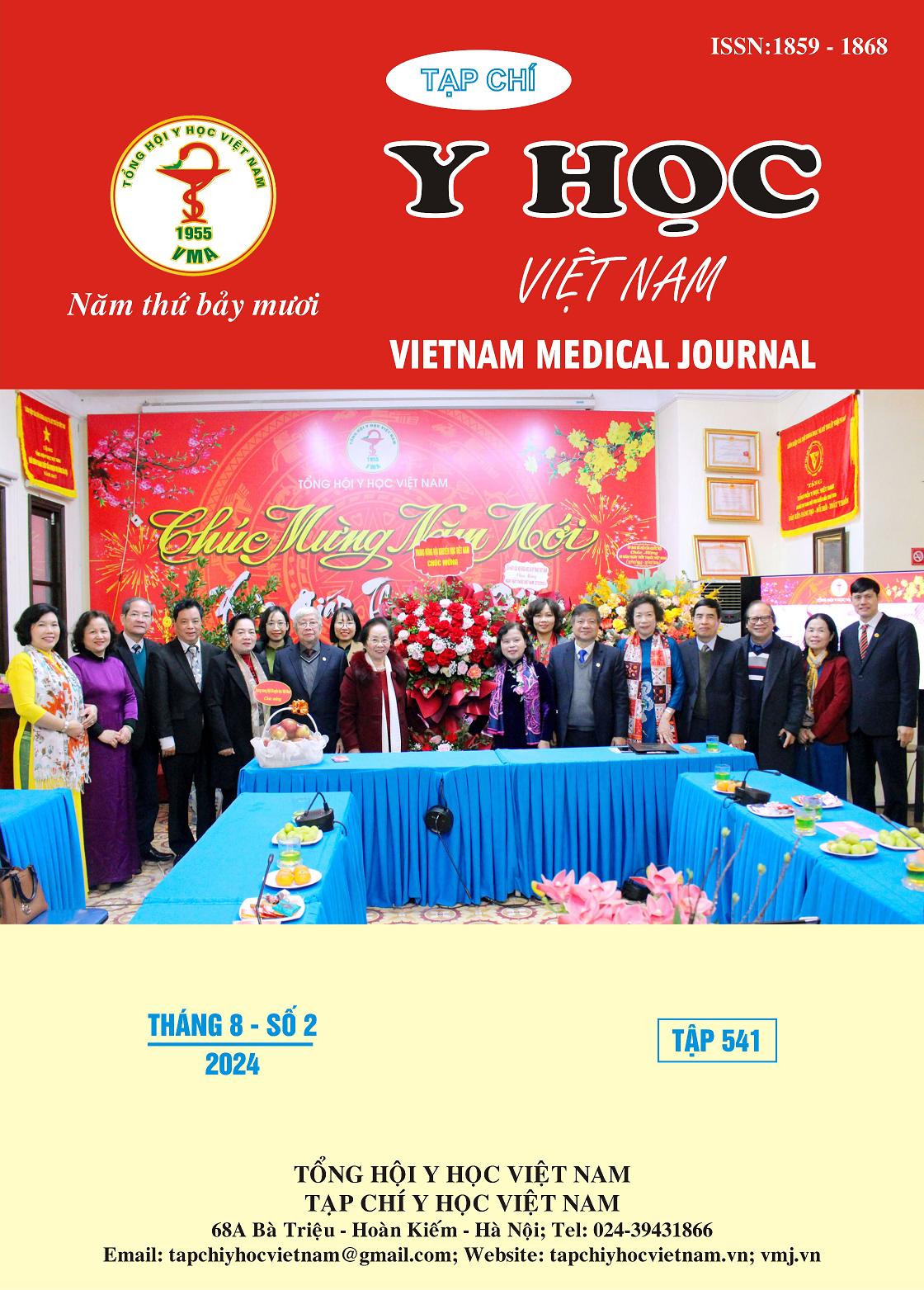FAMILIAL ADENOMATOUS POLYPOSIS – A CASE REPORT
Main Article Content
Abstract
Familial adenomatous polyposis (FAP) is a rare genetic disorder characterized by the presence of hundreds to thousands of polyps in the colon. Testing for APC gene mutations plays a crucial role in screening and early detection of this disease. Here, we report a case of a 36-year-old individual with asymptomatic FAP identified through endoscopic imaging and genetic testing
Article Details
Keywords
: Familial adenomatous polyposis, APC gene
References
1. Aihara, H., N. Kumar, and C.C. Thompson, Diagnosis, surveillance, and treatment strategies for familial adenomatous polyposis: rationale and update. Eur J Gastroenterol Hepatol, 2014. 26(3): p. 255-62.
2. Leoz, M.L., et al., The genetic basis of familial adenomatous polyposis and its implications for clinical practice and risk management. Appl Clin Genet, 2015. 8: p. 95-107.
3. Hutter, P., et al., Molecular and clinical characteristics in 32 families affected with familial adenomatous polyposis. Hum Mutat, 2001. 18(6): p. 550.
4. Miyoshi, Y., et al., Germ-line mutations of the APC gene in 53 familial adenomatous polyposis patients. Proc Natl Acad Sci U S A, 1992. 89(10): p. 4452-6.
5. Miyoshi, Y., et al., Somatic mutations of the APC gene in colorectal tumors: mutation cluster region in the APC gene. Hum Mol Genet, 1992. 1(4): p. 229-33.
6. Half, E., D. Bercovich, and P. Rozen, Familial adenomatous polyposis. Orphanet J Rare Dis, 2009. 4: p. 22.
7. Nielsen, M., et al., Germline mutations in APC and MUTYH are responsible for the majority of families with attenuated familial adenomatous polyposis. Clin Genet, 2007. 71(5): p. 427-33.
8. Zehir, A., et al., Mutational landscape of metastatic cancer revealed from prospective clinical sequencing of 10,000 patients. 2017. 23(6): p. 703-713.
9. Iwama, T., et al., Identification of somatic APC mutations in recurrent desmoid tumors in a patient with familial adenomatous polyposis to determine actual recurrence of the original tumor or de novo occurrence. Fam Cancer, 2009. 8(1): p. 51-4.
2. Leoz, M.L., et al., The genetic basis of familial adenomatous polyposis and its implications for clinical practice and risk management. Appl Clin Genet, 2015. 8: p. 95-107.
3. Hutter, P., et al., Molecular and clinical characteristics in 32 families affected with familial adenomatous polyposis. Hum Mutat, 2001. 18(6): p. 550.
4. Miyoshi, Y., et al., Germ-line mutations of the APC gene in 53 familial adenomatous polyposis patients. Proc Natl Acad Sci U S A, 1992. 89(10): p. 4452-6.
5. Miyoshi, Y., et al., Somatic mutations of the APC gene in colorectal tumors: mutation cluster region in the APC gene. Hum Mol Genet, 1992. 1(4): p. 229-33.
6. Half, E., D. Bercovich, and P. Rozen, Familial adenomatous polyposis. Orphanet J Rare Dis, 2009. 4: p. 22.
7. Nielsen, M., et al., Germline mutations in APC and MUTYH are responsible for the majority of families with attenuated familial adenomatous polyposis. Clin Genet, 2007. 71(5): p. 427-33.
8. Zehir, A., et al., Mutational landscape of metastatic cancer revealed from prospective clinical sequencing of 10,000 patients. 2017. 23(6): p. 703-713.
9. Iwama, T., et al., Identification of somatic APC mutations in recurrent desmoid tumors in a patient with familial adenomatous polyposis to determine actual recurrence of the original tumor or de novo occurrence. Fam Cancer, 2009. 8(1): p. 51-4.


